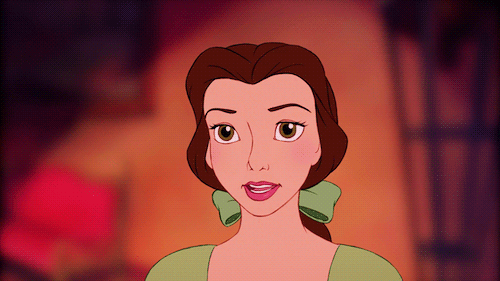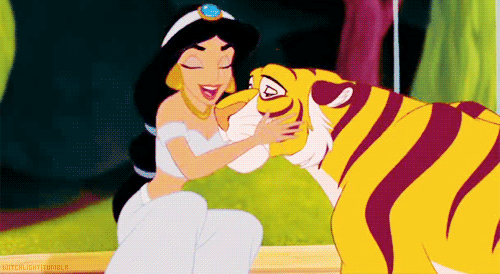You don't need a degree to become a successful writer. Even still, I went to school for that because writing is something that I love and cannot see myself not doing.
I also love Disney movies. When I recently watched "Coco," I noticed that Disney knows the hallmarks of a well-written story better than some college students - myself included. In fact, watching and re-watching Disney has taught me more than my college workshops did.
1. You need to know your protagonist.
 Giphy
GiphyAll you need is a name, an occupation, three adjectives about them, and where they are from. You don't need to go into excruciating detail about how long their hair is or whether she is left- or right-handed. I mean, if it is imperative to the plot, then definitely include it.
2. You also need a secondary character that adds conflict.
Again, you just need a name, three adjectives to describe them, a job, and where they're from. They're not always the antagonist - in my case, I was writing a short story about romance, so the secondary character was the love interest. You may even have more than one secondary character/antagonist, which, if this is the case, would heighten the conflict of your story.
3. You need to write about the nature of their relationship and its importance to the protagonist.
This helps establish a motive for the protagonist and fleshes them out. It adds to the story's depth as well, allowing the reader to believe and rely on the protagonist to drive the story forward. Without this (which is what my story is lacking), your story is all action and no talk. There is no reason to keep on reading if you don't write about how important/dangerous/sick the relationship is to your protagonist.
4. You need an event that incites a call to action.
What's a story if you don't have an event that inspires your protagonist to move forward? I read a book this year that essentially had no call to action - how it became published, I don't know. Without this event, your protagonist is stuck in the headspace/place you started them in. So make sure you have an event that your protagonist can work their way towards to.
5. You need to know your protagonist's response to the event, or the consequence of it.
A good story shows a character's emotional development - not just their flaws and beauty. It circles back to all the other prior steps about the relationship/conflict with secondary characters. Knowing their level of attachment to their story will inspire the reader's level of attachment to it too. You want to root for your characters - and if your plot doesn't give you that, then you may need to contemplate how you want your protagonist to mature and develop in your story.
6. You need to write how the event affects the relationship too.
 Giphy
GiphyConflict always affects everything - you would be silly to think that nothing can be affected by it. Not only does your character grow, but so does the relationship in your story. We're not rooting just for one character, we're rooting for all of them. We want to fall in love with the book and by giving it a colorful portrayal of how relationships work, we can do that. The world functions on relationships and conflict; it's the only meter we can judge by to see how we've improved. Your story should always ALWAYS include how the relationship was compromised, improved, destroyed, etc. It will make it stronger.
7. And finally, you need to include what would be the last straw to the relationship.
What would make or break the relationship? What will make your reader get the most out of your story? This is the only question that matters to your story really. Your characters need obstacles to overcome - or not if that's just your writing style. But the last-straw conflict, otherwise known as the high stakes, will be the awe-factor for your reader. Does your protagonist go through with it? Do they kill their own mother to get to their inheritance faster? What you choose as your high stakes will definitely be the reason people pick up your book. They want to be dumbstruck by what your character will do to get their way.
Hopefully, you are not too overwhelmed by what you need to know. In fact, just disregard everything and write your story down, now, before it gets away from you. The first draft is about getting the ideas to flow, after all. Just keep these things in mind when you are writing your second draft.



















